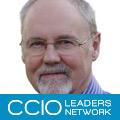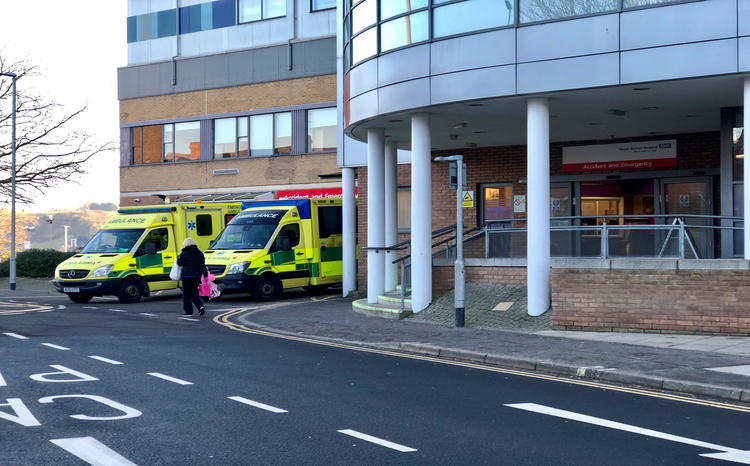Enter the CCG, one year on
- 9 April 2014

It’s now a year since clinical commissioning groups went live. So this seems like a good moment to ask: what has our CCG done? And what should its informatics be aiming for in the coming twelve months?
A complex first year
It’s not been the easiest first year. Nevertheless, our CCG is making progress, slowly and steadily.
On the IT front, we’ve set up an IT and Informatics Steering Group which, I’m pleased to say, mainly communicates electronically.
Even so, it will probably be best if we consider our first year as being mostly preparation – finding our feet, working out what we need to do – and learning to be patient with external circumstances totally outside our control – such as the section 251 issue.
It has been explicitly stated – and firmly accepted within the CCG – that many of the IT decisions taken this year won’t have any immediate effect.
In particular, there will be no instant financial benefits. Instead, we are laying the foundations for significant improvements in quality and cost-effectiveness in subsequent years.
Our eDSM roll out has worked well
To my mind, by far the most satisfying local IT project in the past year was our rollout of SystmOne’s enhanced data sharing mechanism (eDSM).
This demonstrated the importance of including non-IT aspects when planning the release of any IT module.
Introducing any new application inevitably impacts on the people, the paper and the processes. Teaching users how to press buttons and click on on-screen tabs is only a minor part of good change management.
In the case of eDSM we even had to include legal aspects, as well as showing practices how to put eDSM into place without dislocating their normal daily working.
This meant devising ways for practices to implement eDSM holistically, rather than as a purely on-screen experience.
We thought through a range of alternative scenarios (both good and bad), prepared explanatory hand-outs for practices, wrote sample patient-counselling documents, and produced and distributed extra software to make the recording of counselling and consenting easier.
Not only that, but we told practices what we would do – and then did it when we said we would. As a result, I very much hope that practices now feel they can rely on the IT people in the CCG.
I hope they see us as a source of information, think we will do the jobs we promise, and can be relied on to troubleshoot if things go wrong. It all helps in building a sense of security and camaraderie across the patch.
So has our referral management software
Another project that went well – although, at first, it looked like a negative – has focused on referral management software.
We put on a CCG-wide, day-long demonstration that gave all practices the opportunity to look at alternative software offerings and give us their feedback.
Eventually, we decided that no current software package truly fulfilled what we were looking for. So why was this a success?
Very importantly, everyone in the CCG and its constituent practices knew what we were up to, and had the opportunity to have their say. Secondly, not buying software is sometimes more important than purchasing it.
Why acquire software to reduce variations in referral if the net effect is to raise the amount of time practitioners spend on referrals, increase their frustration, cost the CCG more, yet not have a guaranteed significant effect on referral quality and/or cost?
That, in my book, was an important result. We shall of course be keeping our eyes open for future developments in this field.
And now for the future…
What are the challenges for year two? The CCG has already refined the way clinicians provide feedback on the quality of services from secondary providers: I hope this this will soon have an important effect on the commissioning process.
In the past, although a lot of time was spent nationally on paying lip service to commissioning for quality, few CCGs (as with the primary care trusts before them) have really grasped the nettle of using feedback about the quality of secondary care activity to modify their commissioning process and drive up the standard of care.
I’m sure this will soon begin to change – and that better data will start bringing in the real benefits of clinician-led commissioning.
The rise of analytics
The increasing exploitation of analytics within the CCG will be a paramount goal in the coming year.
As is so often said, the NHS is awash with data but short of information, and I want to change that. Practices need access to useful dashboards, and to reports which show them exactly what they need to change.
These will allow everyone to see where inappropriate variations in diagnosis and treatment are costing money, time and patient morbidity, and allow clinicians to share good practice throughout the CCG.
There is nothing worse for a clinician than to know that he or she is an outlier; but not to be able to find out why, nor to be able to focus in on what, if anything, needs to be done about it.
By making sure that relevant dashboards and easy-to-use comparator software are available, I hope to make my GP colleagues feel (and be) much more in control.
So the really big target for me over the next year will be the start of a long-term attempt to reduce inappropriate variation between practices.
But note the word ‘inappropriate’: it’s all too easy to use data too simplistically, and jump to inappropriate conclusions, a situation which concerns me greatly. I’ll be discussing this in detail next month.


Dr John Lockley
Dr John Lockley is clinical lead for informatics at Bedfordshire Clinical Commissioning Group and a part-time GP.




